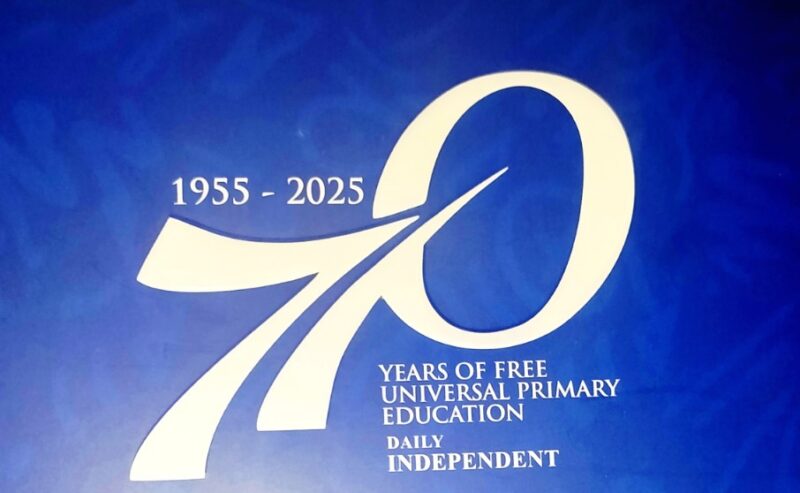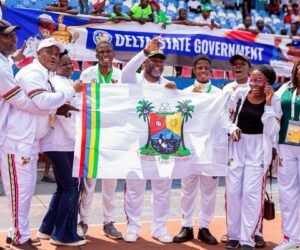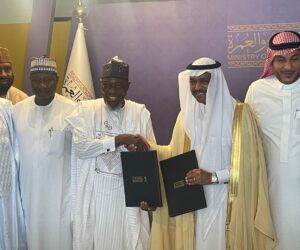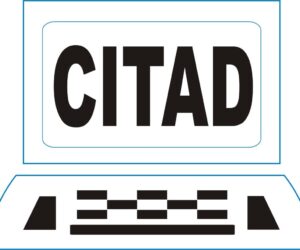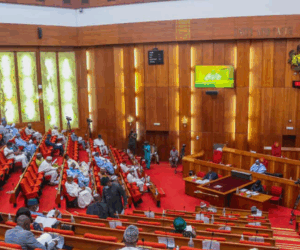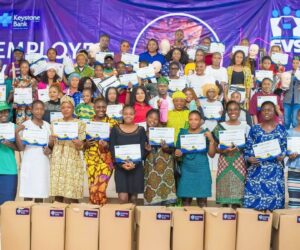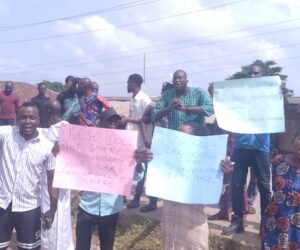2
… Panelists Send wake-up Call To Northern Governors, Others.
President Ahmed Bola Tinubu, on Thursday in Lagos, reaffirmed the commitment of his administration to the foundational promise of quality free education which was laid by Late Chief Obafemi Awolowo, the Premier of Western region, Sir Ahmadu Bello, Premier of Northern region and Dr Nnamdi Azikiwe, the Premier of Eastern Nigeria.
The President stated this in his address at the 70th Anniversary of the launch of Free Universal Primary Education in Nigeria, organized by Independent Newspapers Limited, held at the Expo Hall of Eko Hotel and Suites, Victoria Island, Lagos.
President Tinubu, who was represented by Aisha Garba, the Executive Secretary of Universal Basic Education Commission (UBEC), assured Nigerians that the implementation of various policies related to education would be focused on measurable outcomes and inclusion for all Nigerian children.
President Tinubu highlights the significance of free universal primary education in Nigeria, emphasizing that Chief Obafemi Awolowo’s declaration, 70 years ago, set up the foundation for free primary education for every Nigerian child, which has become a national identity.
He said, “Seventy years ago, in Ibadan, Chief Obafemi Awolowo declared that every Nigerian child, regardless of their circumstances, must have free access to primary education. Dr Nnamdi Azikiwe carried the torch to the East in 1957, while Sir Ahmadu Bello extended it to the North in 1960. What began as a regional policy became a national covenant. Our founding fathers did not merely launch a programme—they defined a national identity that Nigeria’s greatness is rooted in the enlightenment of all.”
According to him, education is considered a fundamental right, and the current administration’s Renewed Hope Agenda aims to renew this commitment, positioning education at the heart of national policy and governance.
“Nigeria aims to overcome fragmentation in the education sector through coordinated efforts, aligning various educational agencies under a unified plan, the Nigeria Education Sector Renewal Initiative (NESRI).
He said that the Nigeria Education Data Initiative (NEDI) was recently launched by the government, which allows real-time tracking of educational enrollment and performance, recognizing the significance of reliable education.
According to him, the Universal Basic Education Commission is moving forward to promote systemic reform with a focus on equal access, quality learning, and strong funding. He mentioned that substantial financial contributions have been made to basic education, including doubling budgetary allocations and mobilizing over $1 billion in development finance.
As part of ongoing reforms, the President said that a new national curriculum has been introduced to enhance national identity and promote unity, along with significant investments in vocational education to prepare youth for the future job market.
Basic education reform also includes a revised federal government Matching Grant System, which provides states with greater flexibility to address their specific education needs and an accountable system for using education funds. States have been able to plan effectively and digitally track implementation for the first time in more than 20 years thanks to the revision of the Basic Education Action Plan (BEAP).
As a result of these reforms, within a year, twenty-eight states have accessed 70% of the many years of inaccessible federal matching grants.
These, according to him, have already resulted in the training of hundreds of thousands of teachers and improvements that positively affect millions of children nationwide.
He urged a global partnership to support Nigeria’s educational initiatives, acknowledging the link between improving education and achieving global goals.
Mmmmmmmmmmmmm
Earlier, the guest lecturer and former Minister of Power, Prof. Nnaji urged the federal and state governments to allocate funds to give computers to public primary school teachers in 774 local governments.
He emphasized that this plan would ensure that the teaching of Artificial Intelligence is included in the foundational education stage.
In his paper titled: “Show the Light, and the People Will Find the Way”, Prof Nnaji lauded the launch of Free Universal Primary Education in Western Nigeria by the Chief Awolowo government on January 17, 1955, and praised the healthy competition among the region that led to the implementation of the free education by Dr. Nnamdi Azikiwe, the Premier of Eastern Region and Sir Ahmadu Bello in the Northern region.
According to him, the period was the most significant development in Nigeria’s history, and it has become imperative to embrace it.
According to him, the period marked the most important development in Nigeria’s history, saying that it has become imperative to embrace generative artificial intelligence in the education system, starting from primary school.
Chief Bisi Akande, who was one of the original teachers of the free education programme and was an Awoist, expressed regret that the ambitious programme initiated by late Chief Obafemi Awolowo, which was already affecting the populace, was interrupted by the military takeover of governance.
“It is unfortunate, however, that the progress of such purposeful education, which was established at the time, became stifled and bastardized by the military’s infiltration into Nigerian governance.
“Before the military forcefully took over the government of Nigeria, numerous diligent educationists, religious and individual proprietors, were managing most of all educational institutions methodically and scrupulously.
“There were four autonomous regions, each of which were free to decide on his educational policies. These proprietary establishments and management were appropriately and duly being granted to accommodate the facilities of whatever type of scholarship and whatever type of free education desired by each of the regional governments that have the policies for free education at various levels.”
He lamented that the military putsh of 1976 led to the snatching of education that was handed over “To new states that were created with new governments and new civil service structures that had no proper trainings and experiences in institutional proprietorship.”
According to him, the new government’s overwhelming setbacks led to the present decadence in the education sector.
He praised the management of Daily Independent Newspapers for honouring the ideals of the pioneer heroes of Nigeria and the legacy they left behind.
The panel session, which featured Dr. Danladi Bako, a former Director General of the Nigeria Broadcasting Commission (NBC) and Otunba Segun Runsewe, who called on both the federal and state governments to reenact the deep thoughts and healthy rivalry exhibited by the three sages that laid the foundation for mass literacy among Nigerians beginning from 1955.
They requested that the governors follow the purposeful actions demonstrated by the regional leaders who established the foundation for literacy during that period.
The highlight of the event was the presentation of platinum awards to the governors of Kogi, Ekiti, Nasarawa, Anambra, Kano, Taraba, Ogun, and Bayelsa States in recognition of their commitment to free education.
Three philanthropic individuals, including Mr. Jacob Idunfaga, the Chief Executive Officer of Fairtex Group; Dr. Emmanuel Abraham, the founder of Top Faith University; and Dr. Andy Eyo, the Chief Executive Officer of ECEWS, were honoured with the education ambassador awards.
The platinum anniversary also featured the presentation of posthumous awards to Chief Obafemi Awolowo, Dr. Nnamdi Azikiwe, and Sir Ahmadu Bello.

